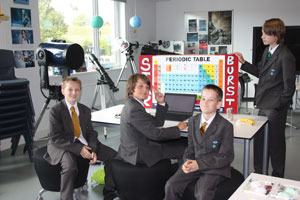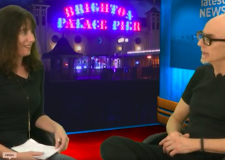Science: Unlocking Potential
Dr Caroline Oprandi Keeping you up to date with science and technology at PACA
On Monday we are going to the Royal Academy because we have reached the finals for the TeenTech competition. The pupils have been working extremely hard during their lunchtime and afterschool in order to get the project ‘Starburst Elements’ finished. Anthony from the University of Sussex has volunteered both his time and expertise on this project and a group of year 9 pupils have been learning to code, to use Raspberry Pi’s, Arduino sensors and RFID readers. The year 9s trialled their interactive 3D periodic table game on a group of year 7s and the feedback they got was ‘awesome’. It was a very proud moment for me when I witnessed the delight on the year 9s’ faces.

The game involves scanning objects made by the 3D printer to ultimately see which element the object contains. The scanned object will then light up an element on the periodic table via an LED. There is a leader board to keep score when playing the actual game. It is such a winning formula of educating children since we are using expertise from the University of Sussex’s Informatics Department to teach a group of children a set of skills, who then go onto use it to teach even younger children a concept. The actual game idea and interface can be used for a variety of different games, such as a maths game or geography game. I am calling the project ELF games: Educational Learning Fun games, designed for the classroom by pupils for pupils.
There was no assessment for learning involved, no marking of books, no exams or grades, no seeing how we progressed from the start of the project to the finish since the learning along the way was always evident, plus the pupils carried this out willingly in their spare time. It made me think- why can’t all learning be this way where the goal of learning is driven by the pupils natural desire to achieve and discover, rather than an employer’s desire to use a grading structure to sift out potential candidates?





















